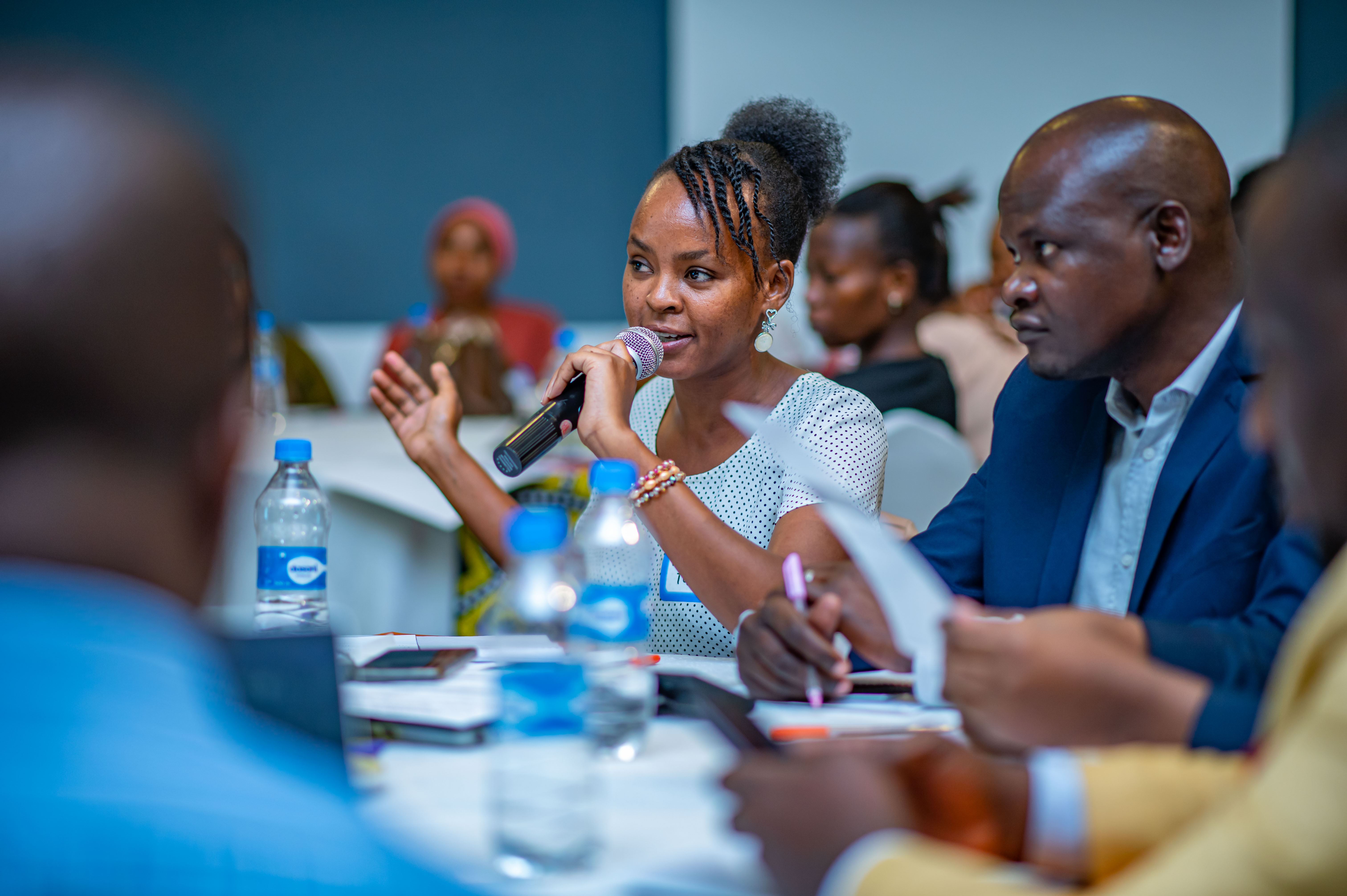
On November 9-10, 2022, CAMFED Tanzania convened a regional meeting of 77 key technical advisory officials and Ministry decision-makers from Tanzania, Zambia and Zimbabwe, together with front line implementers, as part of its GPE (KIX)-supported innovative participatory research project exploring scaling a youth-led social support and mentorship program to improve quality of education for marginalized girls.
Participants had been on an extensive learning journey, exploring CAMFED’s “Learner Guide” program as a model for improving equitable education and post-school opportunities for marginalized youth. Learner Guides are young women who volunteer in their local schools to deliver a structured life skills and wellbeing curriculum, provide individual mentoring and role modeling, and create school-community linkages through home visits, improving learning and reducing dropout.
CAMFED had recruited members of national level committees in all three countries to advise on if and how the Learner Guide role could be adapted and integrated into government systems. Advisers brought key technical expertise, and enthusiasm for being active researchers. In each country, they visited schools to observe Learner Guides in action, and conducted structured interviews with students, teachers, Learner Guides and community members, with findings discussed at national level meetings.
As a result, advisors arrived in Dar es Salaam with well-informed qualitative and quantitative data, and deeply considered reflections on the promise of the Learner Guide model for their respective countries. They listened to speakers, and actively engaged in breakout groups with peers from similar technical and policy backgrounds, responding to questions around the promises and challenges of the model; and the opportunities for further integration in formal systems to address national priorities.
Discussions revealed a common appreciation for the value of the Learner Guide role, while acknowledging policy and structural differences across countries. The meeting included practical recommendations for implementation, and clearly demonstrated the power of engaging government and implementing partners in participatory action research, bringing together expertise, strong ideas and deep collaboration in support of education innovation.
